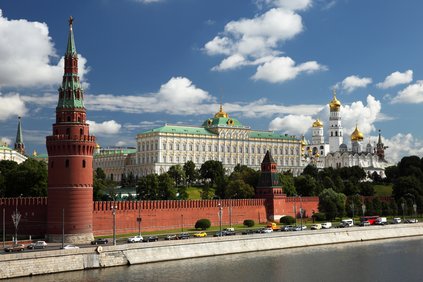Research - 20.02.2024 - 14:00
Mental health affected internationally after the outbreak of war in Ukraine
The start of Russian aggression against Ukraine almost two years ago has led to a collective collapse in well-being worldwide – regardless of the age, gender, political orientation or other characteristics of the people surveyed. This is shown by a study conducted by an international team of researchers from the University of Münster with the participation of HSG academics.

The start of Russian aggression has led to a collective collapse in well-being, shown by researchers from University of Münster and HSG academics.
The Russian war against Ukraine has had negative consequences for collective well-being in various countries. With regard to recovery from this shock, however, individual personality traits are decisive. These are the findings of an international team of researchers led by psychologists Julian Scharbert and Prof Dr Mitja Back from the University of Münster. The study is based on around 45,000 individual surveys of 1,300 people from 17 European countries, in which more than 50 researchers were involved. HSG Professor Clemens Stachl was involved in the study and collected the data for Switzerland. It has now been published in the scientific journal "Nature Communications".
The study, which was conducted from the end of 2021 to the summer of 2022, made it possible to analyse daily mood patterns during the weeks of the outbreak of war. "Normally, it is not possible to investigate such drastic events in a precise time window with a simultaneous geographical breadth," says Mitja Back, categorising the relevance of the study. The data is unique. The researchers focused on people in Europe and a two-month time frame around the outbreak of war on 24 February 2022.
The most important results in brief:
- The measurable collective psychological impact is greater than after the Fukushima nuclear disaster in 2011 and the corona lockdown in 2020.
- People in Europe had a significantly lower level of well-being compared to the rest of the world during the survey period.
- The surveys do not reveal any direct correlation between being strongly affected and active solidarity, for example through donations or participation in demonstrations.
- On days with a particularly strong presence of the war in the social media, a worse mental state was observed on average.
The study focussing on mental health adds a further dimension to the debate on the humanitarian, political and economic consequences of the war. While well-being was stable before the outbreak of war, there was a collective drop on the day of the Russian invasion. In terms of recovery from this shock, however, the researchers found systematic differences. "People with a more vulnerable, less stable personality, in contrast to more stable people, did not recover on average even one month after the start of the war," explains Julian Scharbert, PhD student and first author of the study.
"In addition to the obvious consequences of the war, such as flight or interrupted supply chains, there is a less obvious dimension: the impact of daily news and images on the psyche," says study author Julian Scharbert from the University of Münster. "Our data indicate that political and social actors should also focus on mental health in times of crisis – especially for people who are already more susceptible to stress." People in Ukraine and Russia would presumably be much more mentally stressed, but no data is available for these countries.
Subjectively and objectively perceived well-being in Switzerland
Collecting data in Switzerland proved to be particularly challenging because only a small number of people took part. Due to the small number of cases, it is also not possible to derive national results for Switzerland, adds HSG researcher Clemens Stachl, Director of the Institute of Behavioural Science and Technology at the University of St.Gallen (IBT-HSG). "Nevertheless, it can be said that the topic of well-being is very relevant in this country. Swiss citizens generally report a very high level of life satisfaction. In contrast, a trend can be recognised throughout the western world: Although the quality of life is objectively high, people do not perceive it that way subjectively." However, it is precisely the subjectively perceived quality of life that is decisive for how people really feel. "In my lab at HSG, we have focussed on this and will be investigating subjective well-being in a major SNSF research project over the next few years," explains Clemens Stachl.
Further information on the study:
Julian Schabert et al (2024): Psychological well-being in Europe after the outbreak of war in Ukraine. Nature Communications; DOI: 10.1038/s41467-024-44693-6
Original publication in "Nature Communications" at:
Psychological well-being in Europe after the outbreak of war in Ukraine (nature.com)
Image: Unsplash / Mitch
More articles from the same category
This could also be of interest to you
Discover our special topics
















